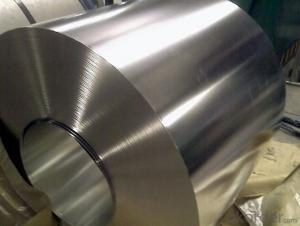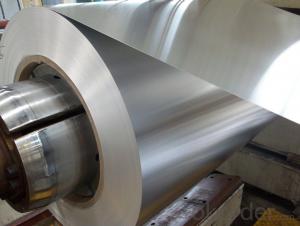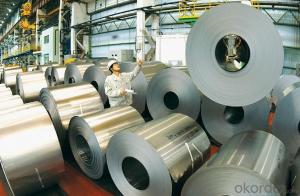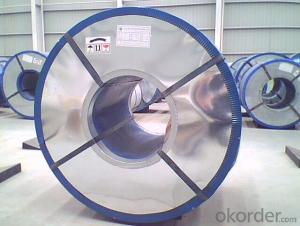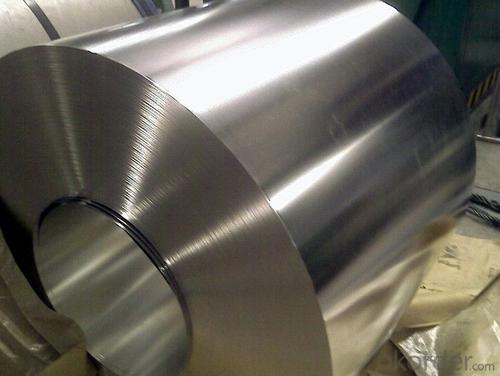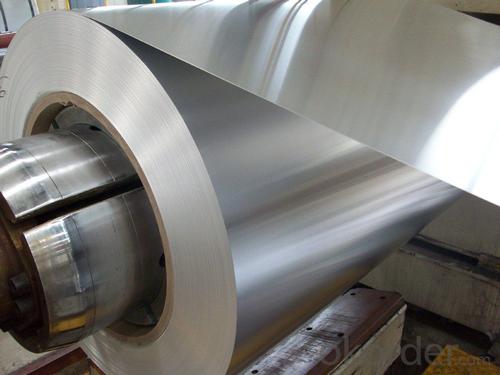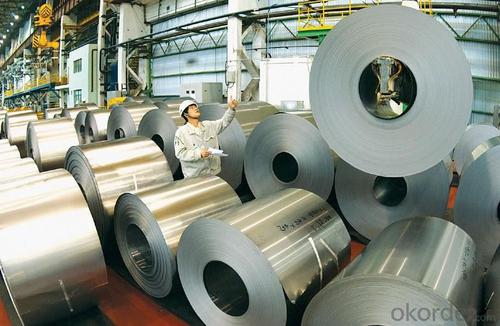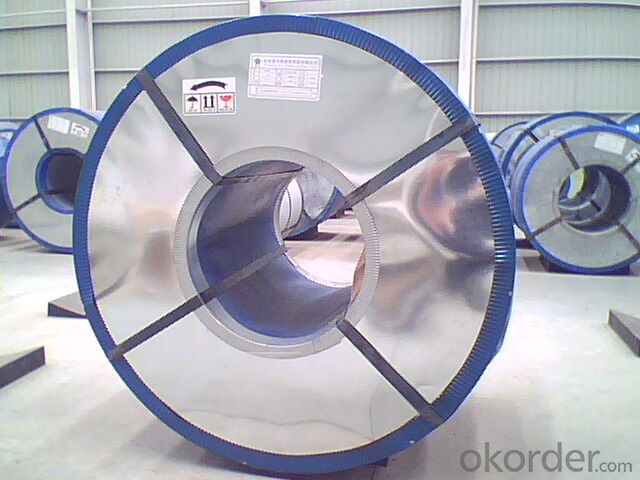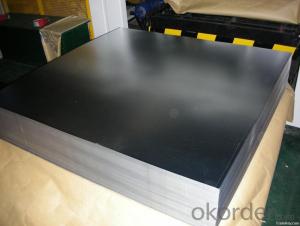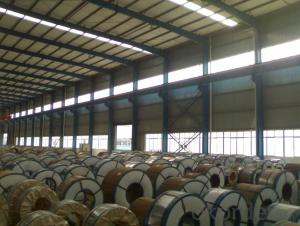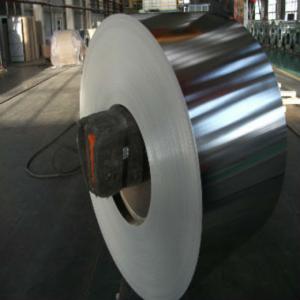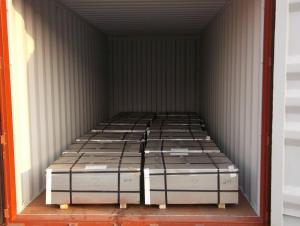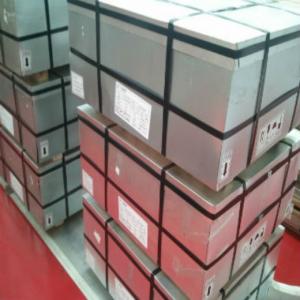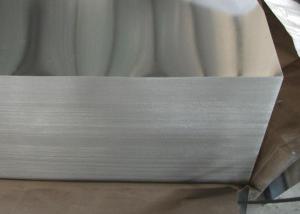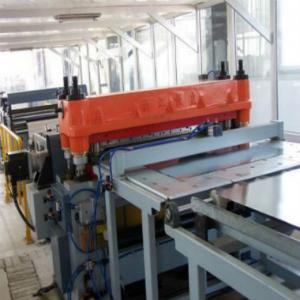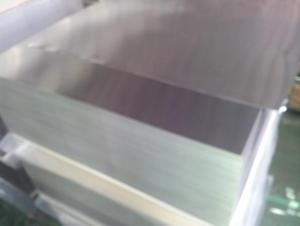Electrolytic Tinplate in Coils for Cans Packing in good price
- Loading Port:
- Tianjin
- Payment Terms:
- TT OR LC
- Min Order Qty:
- 25 m.t
- Supply Capability:
- 7000 m.t/month
OKorder Service Pledge
OKorder Financial Service
You Might Also Like
1.Structure of Electrolytic Tin Plate Coils and Sheets for Foods Metal Packaging Description
Electrolytic Tin Plate Coils and Sheets for Foods Metal Packaging, is one thin steel sheet with a coating of tin applied by electrolytic deposition. Tinplate made by this process is essentially a sandwich in which the central core is strip steel. This core is cleaned in a pickling solution and then fed through tanks containing electrolyte, where tin is deposited on both sides. As the strip passes between high-frequency electric induction coils, it is heated so that the tin coating melts and flows to form a lustrous coat.
2.Main Features of the Electrolytic Tin Plate Coils and Sheets for Foods Metal Packaging
Appearance – Electrolytic Tin Plate is characterized by its beautiful metallic luster. Products with various kinds of surface roughness are produced by selecting the surface finish of the substrate steel sheet.
Paintability and printability – Electrolytic Tin Plates have excellent paintability and printability. Printing is beautifully finished using various lacquers and inks.
Formability and strength – Electrolytic Tin Plates have got very good formability and strength. By selecting a proper temper grade, appropriate formability is obtained for different applications as well as the required strength after forming.
Corrosion resistance – Tinplate has got good corrosion resistance. By selecting a proper coating weight, appropriate corrosion resistance is obtained against container contents. Coated items should meet 24 hour 5 % salt spray requirement.
Solderability and weldability – Electrolytic Tin Plates can be joined both by soldering or welding. These properties of tinplate are used for making various types of cans.
Hygienic – Tin coating provides good and non toxic barrier properties to protect food products from impurities, bacteria, moisture, light and odours.
Safe – Tinplate being low weight and high strength makes food cans easy to ship and transport.
Eco friendly – Tinplate offers 100 % recyclability.
Tin is not good for low temperature applications since it changes structure and loses adhesion when exposed to temperatures below – 40 deg C.
3.Electrolytic Tin Plate Coils and Sheets for Foods Metal Packaging Images
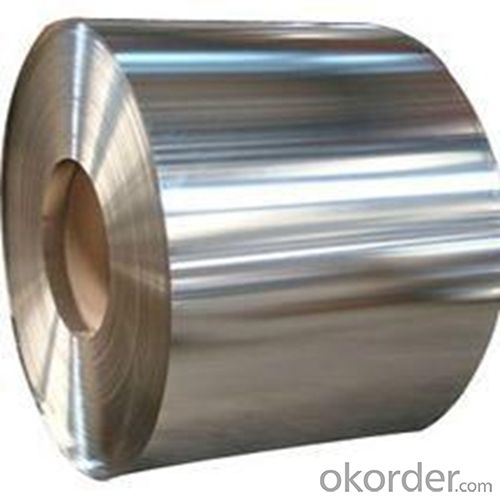
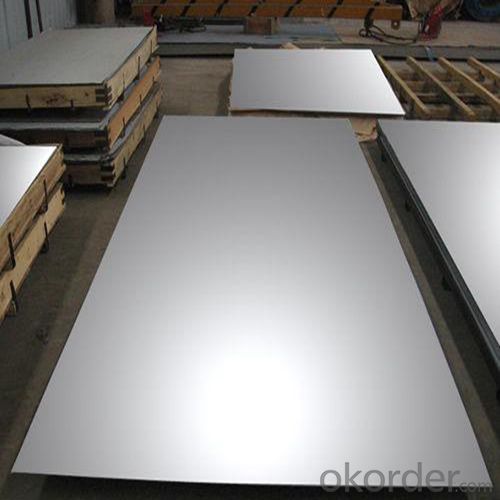
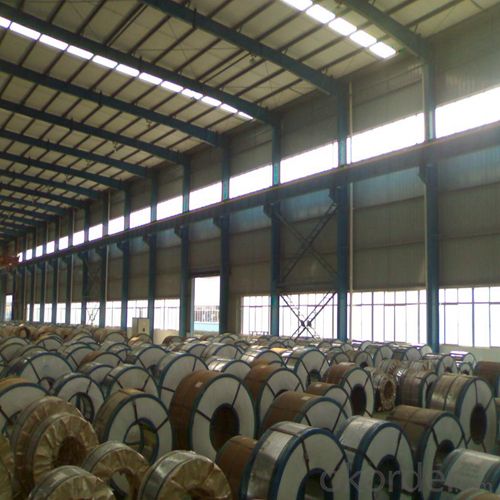
4.Electrolytic Tin Plate Coils and Sheets for Foods Metal Packaging Specification
Standard | ISO 11949 -1995, GB/T2520-2000,JIS G3303,ASTM A623, BS EN 10202
|
Material | MR,SPCC |
Thickness | 0.15mm - 0.50mm |
Width | 600mm -1150mm |
Temper | T1-T5 |
Annealing | BA & CA |
Coil Inner Diameter | 508mm |
Weight | 6-10 tons/coil 1~1.7 tons/sheets bundle |
Passivation | 311 |
Oil | DOS |
Surface | Finish,bright,stone,matte,silver |
5.FAQ of Electrolytic Tin Plate Coils and Sheets for Foods Metal Packaging
-What your tinplate material is used for ?
Tinplate is widely used for the packaging of products. Such as food cans,
beverage cans, pet cans, closures, general line cans and so on.
Printed Tinplate is offered!!
-How to place .an order or contact you ?
Please send us Email. we will give you a quick response in seconds .
- How is your quality ?
All our quality is prime even the secondary quality . We have many years experience
In this field with serious quality control standard . Advanced equipment, We welcome your visit to our factory .
- Q: How is tinplate coated?
- Tinplate is coated through a process called electroplating, where a thin layer of tin is applied onto the surface of steel or iron. This is done by immersing the metal into an electrolyte solution along with a tin anode and passing an electric current through the setup. The electric current causes tin ions to be attracted to the metal surface, forming a protective coating of tin on both sides of the tinplate.
- Q: How does tinplate contribute to the functionality of household goods?
- Tinplate contributes to the functionality of household goods by providing a durable and protective coating that prevents corrosion and preserves the quality of the product. Its ability to resist moisture and maintain food freshness makes it ideal for packaging food items such as canned goods. Additionally, tinplate's versatility allows it to be easily formed into different shapes, enabling the creation of various household items like containers, kitchen utensils, and decorative pieces.
- Q: How does tinplate packaging contribute to product shelf life?
- Tinplate packaging contributes to product shelf life by providing a protective barrier against moisture, light, and oxygen, which helps to prevent spoilage, oxidation, and degradation of the product. This type of packaging also enhances product stability, preserves freshness, and extends the overall shelf life, ensuring that the product maintains its quality and integrity for a longer period of time.
- Q: Tinplate which applies to product packaging?
- Tinplate has obvious superiority compared with other packaging materials.1. good mechanical properties: tinplate cans relative to other containers, such as plastic, glass, paper containers and uniform strength and good rigidity, it is not easy to break. It is not only used for small sale packing, but also the main container for large transportation package.
- Q: How is tinplate used in the confectionery industry?
- Tinplate is commonly used in the confectionery industry for packaging purposes. It is utilized to create tin cans and containers that are resistant to corrosion, ensuring the longevity and freshness of confectionery products. Tinplate packaging also provides a protective barrier against light, oxygen, and moisture, thereby preserving the flavor, texture, and quality of the confectionery items. Additionally, tinplate containers can be easily customized with attractive designs and labels, enhancing the visual appeal and marketability of the confectionery products.
- Q: What are the main challenges in tinplate printing?
- The main challenges in tinplate printing include achieving consistent and accurate color reproduction, managing ink adhesion on the curved and smooth surface of tinplate, preventing smudging or scratching during handling and transportation, and ensuring durability and resistance to corrosion. Additionally, maintaining high efficiency and productivity in the printing process while adhering to environmental regulations is also a significant challenge.
- Q: What are the different types of tinplate printing techniques?
- There are three main types of tinplate printing techniques: lithography, silk screen printing, and varnishing.
- Q: What are the main applications of tinplate in the pet food industry?
- The main applications of tinplate in the pet food industry include packaging for wet and dry pet food products, as it provides a durable and protective barrier against moisture, air, and light. Tinplate cans also offer convenience in terms of storage and transportation, ensuring the freshness and quality of pet food while being easy to handle for pet owners.
- Q: What are the main challenges in tinplate storage and transportation?
- The main challenges in tinplate storage and transportation include ensuring proper handling to prevent damage and corrosion, managing the weight and bulkiness of the material, and maintaining a controlled temperature and humidity environment to prevent deterioration. Additionally, maintaining accurate inventory records and efficient logistics to minimize delays and optimize distribution can be challenging.
- Q: Why tin tin plating?
- In nature, tin is seldom free, so there are few pure metallic tin. The most important tin ore is cassiterite, chemical composition of two tin oxide. This copper smelting tin, iron, aluminum is easy, as long as the cassiterite together with burning charcoal, charcoal will be put out in cassiterite tin reduction. Obviously, the ancient people tin place if there is fire burning when grilled wild animals, the earth would be charcoal reduction of cassiterite, tin silver and melted will flow out. Because of this, tin was discovered long ago.
Send your message to us
Electrolytic Tinplate in Coils for Cans Packing in good price
- Loading Port:
- Tianjin
- Payment Terms:
- TT OR LC
- Min Order Qty:
- 25 m.t
- Supply Capability:
- 7000 m.t/month
OKorder Service Pledge
OKorder Financial Service
Similar products
Hot products
Hot Searches
Related keywords
